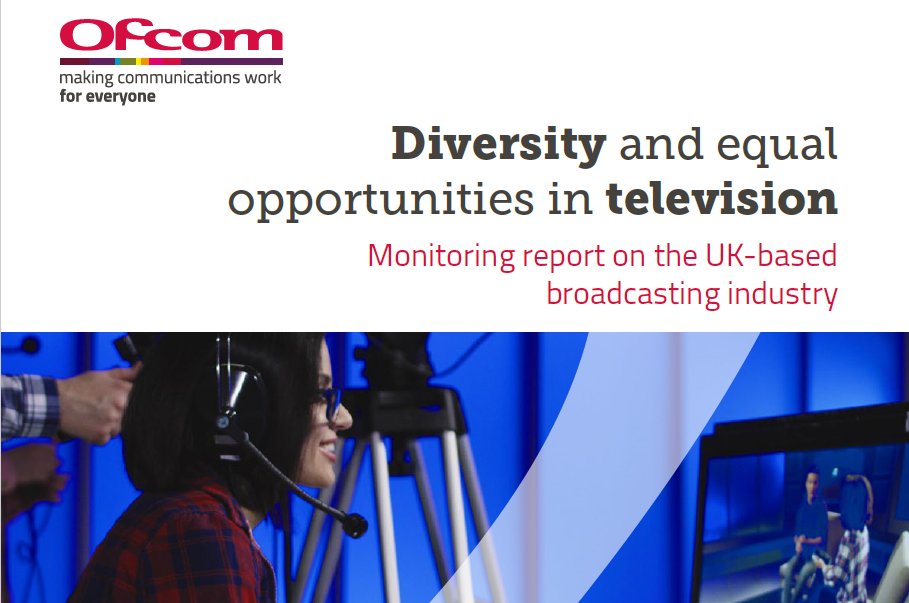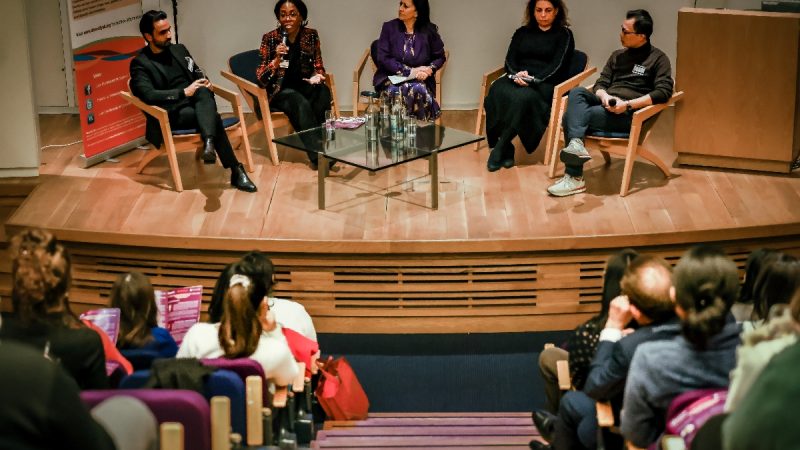Ofcom Report: TV industry still “posh & white”

The UK’s television industry is strongly skewed towards people from privately-educated backgrounds, according to Ofcom research on the sector’s diversity. Their annual Diversity and Equal Opportunities in Television report examines the social and economic background of the television industry for the first time this year. It also reports on companies’ progress in improving the representation of workers including women, disabled people and those from minority ethnic backgrounds. The research helps Ofcom meet its legal duty, set by Parliament, to promote equality of employment opportunity in the broadcasting sector.
Measuring social background
Fourteen major broadcasters – including the BBC, Channel 4 and Viacom (which owns Channel 5) – provided Ofcom with initial information on the social and economic diversity of their organisations.[2] This included the type of schools attended by industry employees, and the occupations and qualifications held by their parents when they were growing up.
This has allowed Ofcom to draw an initial picture of social diversity in UK television, based on responses from 10,188 industry employees – or around 30% of the UK-based television workforce:[3]
Schools.
No employee can control where or how they are educated. But the evidence suggests that the TV industry is disproportionately recruiting people from private-school backgrounds. People working in television are twice as likely than the average person to have attended private schools. Fourteen per cent went to independent or fee-paying schools, double the national average of 7%.[4] A further 22% went to state schools which select pupils on academic, faith or other grounds. Around half (52%) attended non-selective, state schools.
Family background.
TV workers are also almost twice as likely than average to have grown up in homes where the main-earner held a professional occupation (60%, compared to the national average of 33%.) [5] Of the main broadcasters polled, this skew was heaviest among BBC and Viacom employees – who were more likely to say that the main earner in their childhood home worked in a professional role – and least strong among Channel 4 staff. More than half of television industry employees’ parents or guardians had degree-level qualifications or above.
The report details the steps broadcasters are taking to promote social inclusion in their organisations – including offering apprenticeships, internships, work-experience placements and early-career support for people from low-income backgrounds
Wider diversity
Last year, we were encouraged by broadcasters’ progress on diversity, particularly in further improving their understanding of the make-up of their workforces. But while we have more information than we did three years ago,[6] there has been no discernible change in the TV industry’s diversity profile.
Disabled people remain under-represented, with no improvement since last year. The proportion of industry employees who define themselves as disabled remains at 6% – still far below the UK working-age average of 18%. Of the five main broadcasters, Channel 4 (11%) and the BBC (10%) have the highest representation of disabled people, followed by Viacom (8%). ITV (4%) and Sky (3%) have the lowest.
Minority ethnic representation remains low at senior level. The proportion of minority ethnic employees in senior management positions has not risen significantly, moving from 7% to 8%. The proportion of people from minority ethnic backgrounds working across the TV industry remained at 13%.[7]
Women remain underrepresented at senior level. The proportion of women in the television industry has fallen to 45%, short of the 47% across the UK’s working population. The proportion of women in senior management roles has not risen significantly, moving from 41% to 42%. Men over the age of 50 are still more likely to be employed in television than women of the same age (19% v 14%).
Sharon White, Ofcom’s Chief Executive, said: “We want a TV industry where differences are celebrated, and the door is open to all. But the evidence shows that the dial towards full inclusivity is not shifting quickly enough, and we cannot allow progress to stall.
“Broadcasters must redouble their efforts to understand their workforces, examine what is working, and strive harder to attract the most talented people into television – whatever their characteristics or backgrounds.”
Next steps for the TV industry and Ofcom
By 2020, Ofcom is calling on the television industry to:
- further narrow the gaps in diversity information, including on social mobility;
- materially improve representation of disabled people through targeted recruitment and career development programmes;
- work to ensure their workforce is more reflective of the working population of the area where they are based;
- regularly evaluate the effectiveness of initiatives they have in place to a consistently high standard, to assess what works; and
- work with Ofcom and other broadcasters to discuss new and creative ways of promoting equal opportunity.
Ofcom measures
Ofcom is also taking a range of steps in these areas, including:
- seeking extended powers to allow us to collect information from broadcasters on a wider range of diversity characteristics;
- working with Ofcom’s Diversity Advisory Panel[8] to further our understanding of the diversity agenda; and
analysing the impact of TV streaming services such as Netflix and Amazon Prime Video on the make-up of the industry. - We will also be convening an industry event to refresh thinking on diversity and share best practice
Click here to download a copy of the Ofcom Diversity and Equal Opportunities in Television report.




